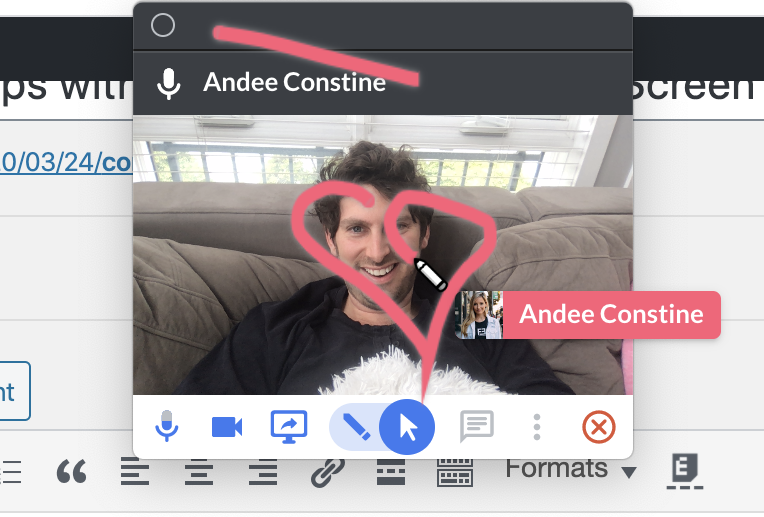INSUBCONTINENT EXCLUSIVE:
It like Google Docs for everything
Screen is a free interactive multiplayer screensharing app that gives everyone a cursor so they can navigate, draw on and even code within
the apps of their co-workers while voice or video chatting
Screen makes it easy and fun to co-design content, pair program, code review or debug together, or get feedback from a teacher.
Jahanzeb
Sherwani sold his last screensharing tool Screenhero to Slack, but it never performed as well crammed inside the messaging app
Five years later, he accelerated the launch of Screen to today and made it free to help all the teams stuck working from home amidst
coronavirus shelter-in-place orders.
Sherwani claims that Screen is 2x-5x faster than other screen sharing tools, and has between
30ms-50ms end-to-end latency
Most other screen sharing tools have between 100ms-150ms.& For being built by just a two-person team, Screen has a remarkable breadth of
features that are all responsive and intuitive
Sherwani says the startup is making due with &no funding, 100% bootstrapped, and I&d like to keep it that way& so he can control his destiny
rather than being prodded for an exit by investors.
A few things you can do with Screen:
Share your screen from desktop on Mac, Windows
and Linux while chatting over audio or video calling in a little overlaid window, or join a call and watch from your browser or mobile
Use
your cursor on someone else shared screen so you can control or type anything just like it was your computer
Overlay drawing on the
screenshare so you can annotate things like ''this is misspelled& or &move this there,& with doodles fading away after a few seconds unless
your hold down your mouse or turn on caps lock
Post ephemeral text comments so you can collaborate even if you have to be quiet
Launch
Screen meetings from Slack and schedule them with Google Calendar integration
Share invite links with anyone with no need to log in or be at
the same company, just be careful who you let control your Screen
Normally Screen is free for joining meetings, $10 per month to host them
and $20 per person per month for enterprise teams
But Sherwani writes that for now it free to host too &so you can stay healthy - productive during the coronavirus outbreak.& If you can
afford to pay, you should, though, as &We&re trying this as an experiment in the hope that the number of paid users is sufficient to pay for
our running costs to help us stay break-even.
Sherwani new creation could become an acquisition target for video call giants like Zoom, but
he might not be so willing to sell this time around
Founded in 2013, Screenhero was incredibly powerful for its time, offering some of the collaboration tools now in Screen
But after it was acquired by Slack after raising just $1.8 million, Screenhero never got the integration it deserved.
We finally shipped
interactive screen sharing almost three years later, but it wasn''t as performant as Screenhero, and was eventually removed in 2019,&
&Given that it was used by a tiny fraction of Slack user-base, and had a high maintenance cost, this was the correct decision for Slack .&
Still, he explains why a company like Screen is better off independent
&Embedding one complex piece of software in another imposes a lot more constraints, which makes it more expensive to build
It far easier to have a standalone app that just does one thing well.
Screen actually does a lot of things well
I tried it with my wife, and the low latency and extensive flexibility made it downright delightful to try co-writing this article
It easy to imagine all sorts of social use cases springing up if teens get hold of Screen
The whole concept of screensharing is getting popularized by apps like Squad and Instagram new Co-Watching feature that launched today.
The
new Co-Watching feature is like screensharing just for Instagram
Eventually, Screen wants to launch a virtual office feature so you can just
instantly pull co-workers into meetings
That could make it feel a lot more like collaborating in the same room with someone, where you can start a conversation at any time
Screen could also democratize the remote work landscape by shifting meetings from top-down broadcasts by managers to jam sessions where
everyone has a say.
Sherwani concludes, &When working together, everyone needs to have a seat at the table.

